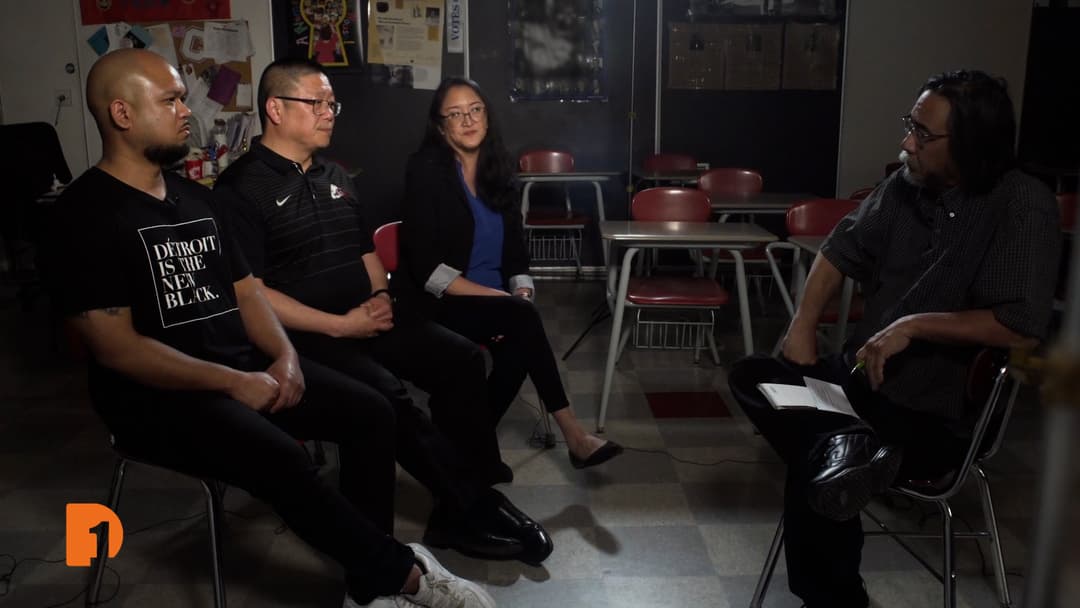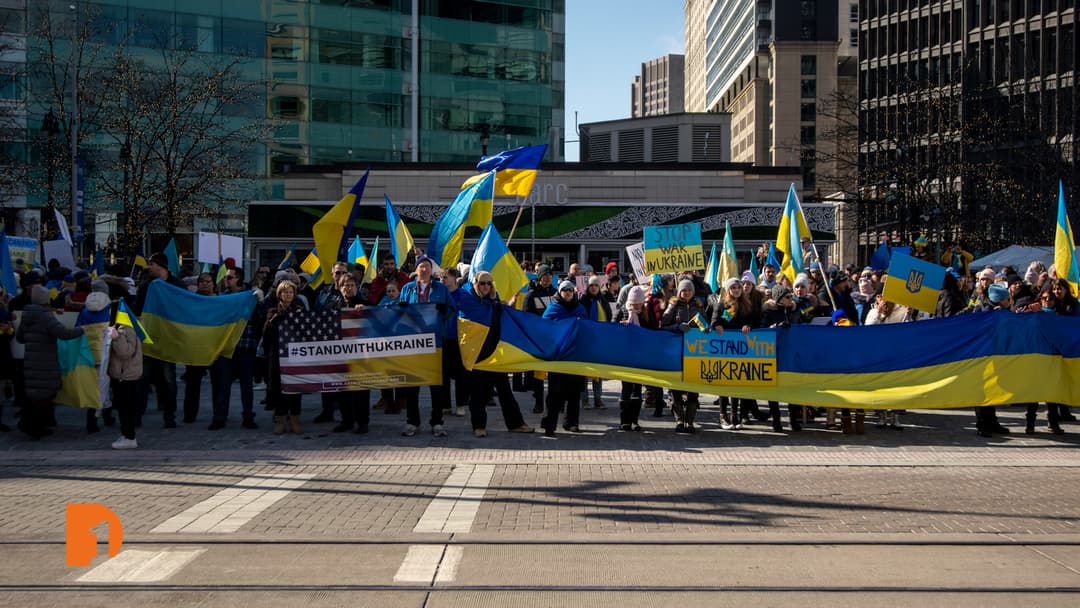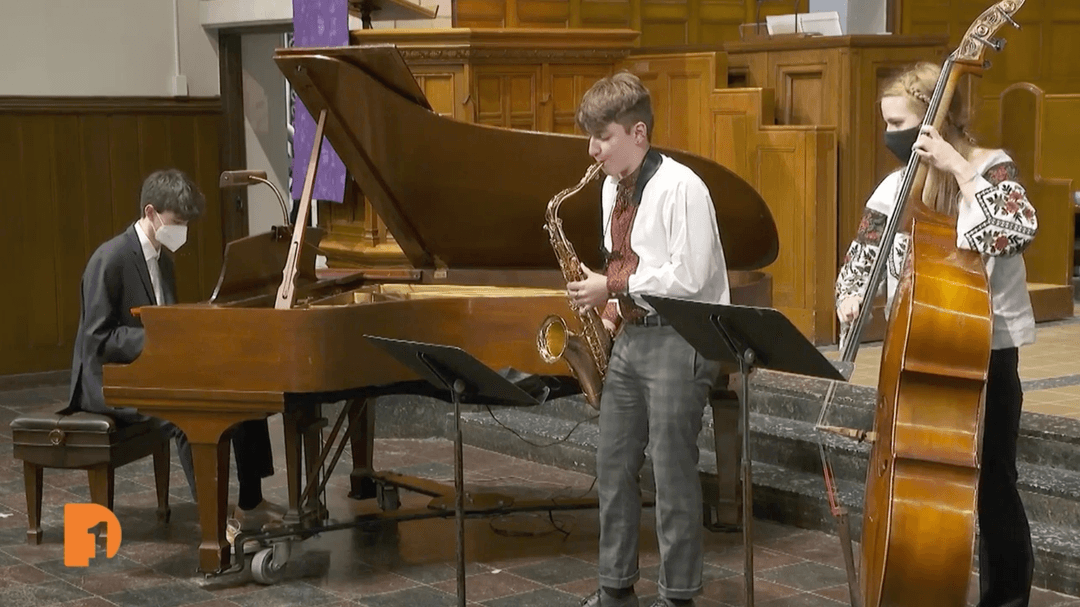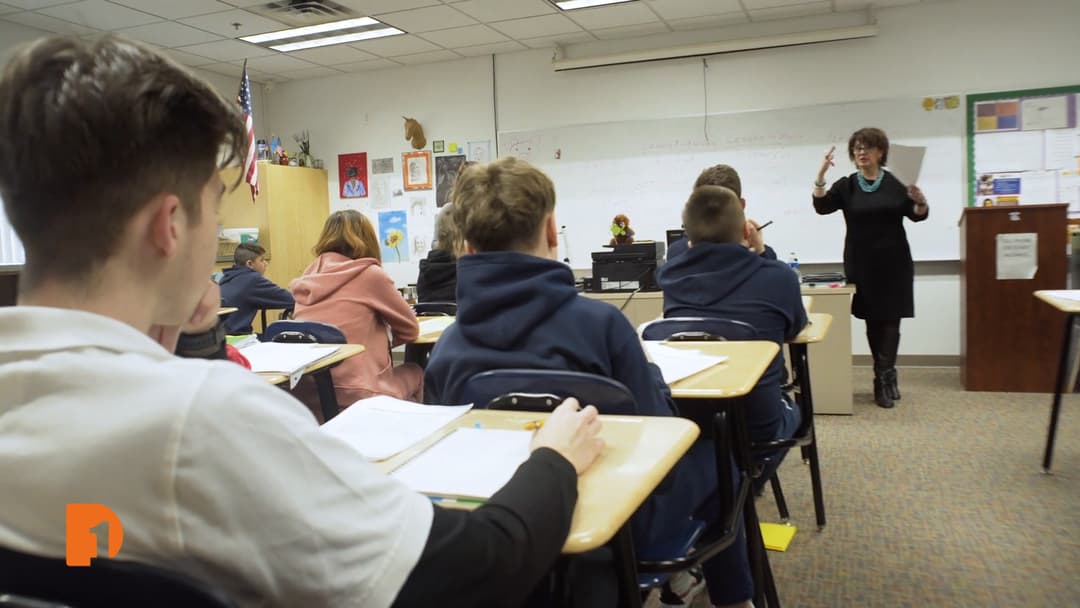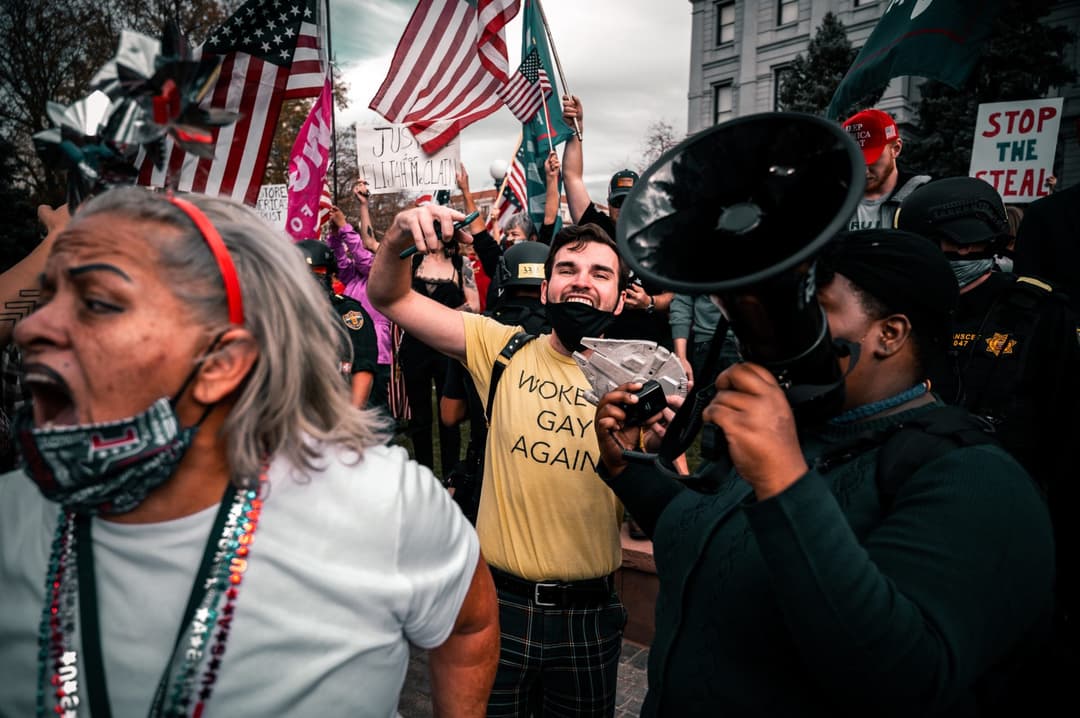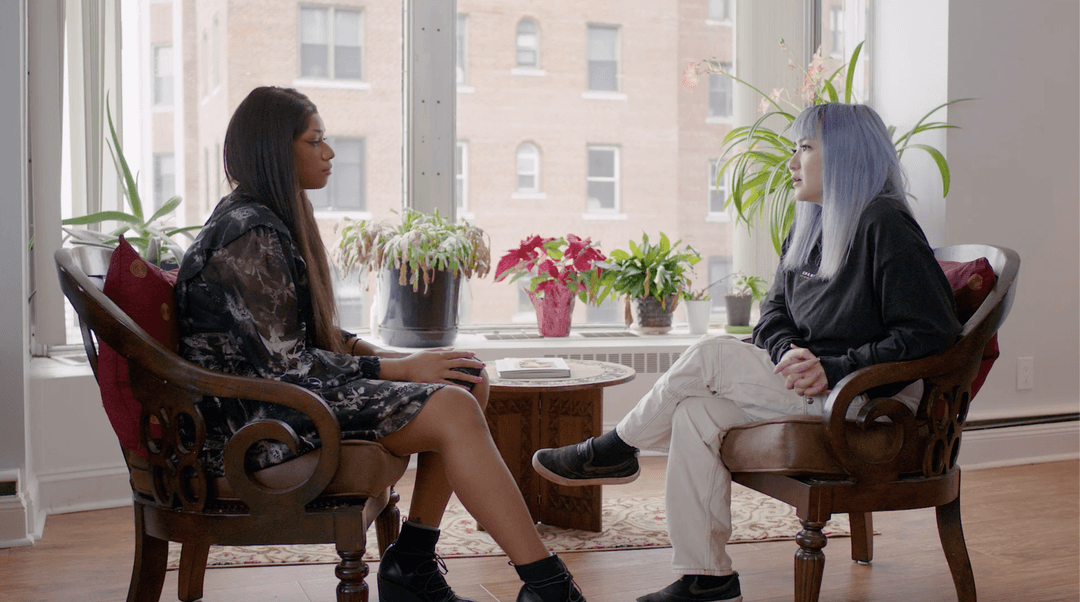Searching for truth in lies: Ukrainian-Americans react to Russia conflict, misinformation campaign
Mar 3, 2022
As everybody watches the developments of the Ukraine-Russia conflict closely, elsewhere online there are forms of disinformation from Russian supporters beginning to populate alongside major news headlines. What’s fact and what’s fiction?
One Detroit’s Bill Kubota talks with two local Ukrainian American attorneys, Natalia Kujan Gentry and Dan Terleckyj, to learn about their efforts to tell the real stories of the Ukraine-Russia conflict overseas, and their battle to fight back against the misinformation being spread online. Plus, they share the support they’re providing to others and the change they want to see.
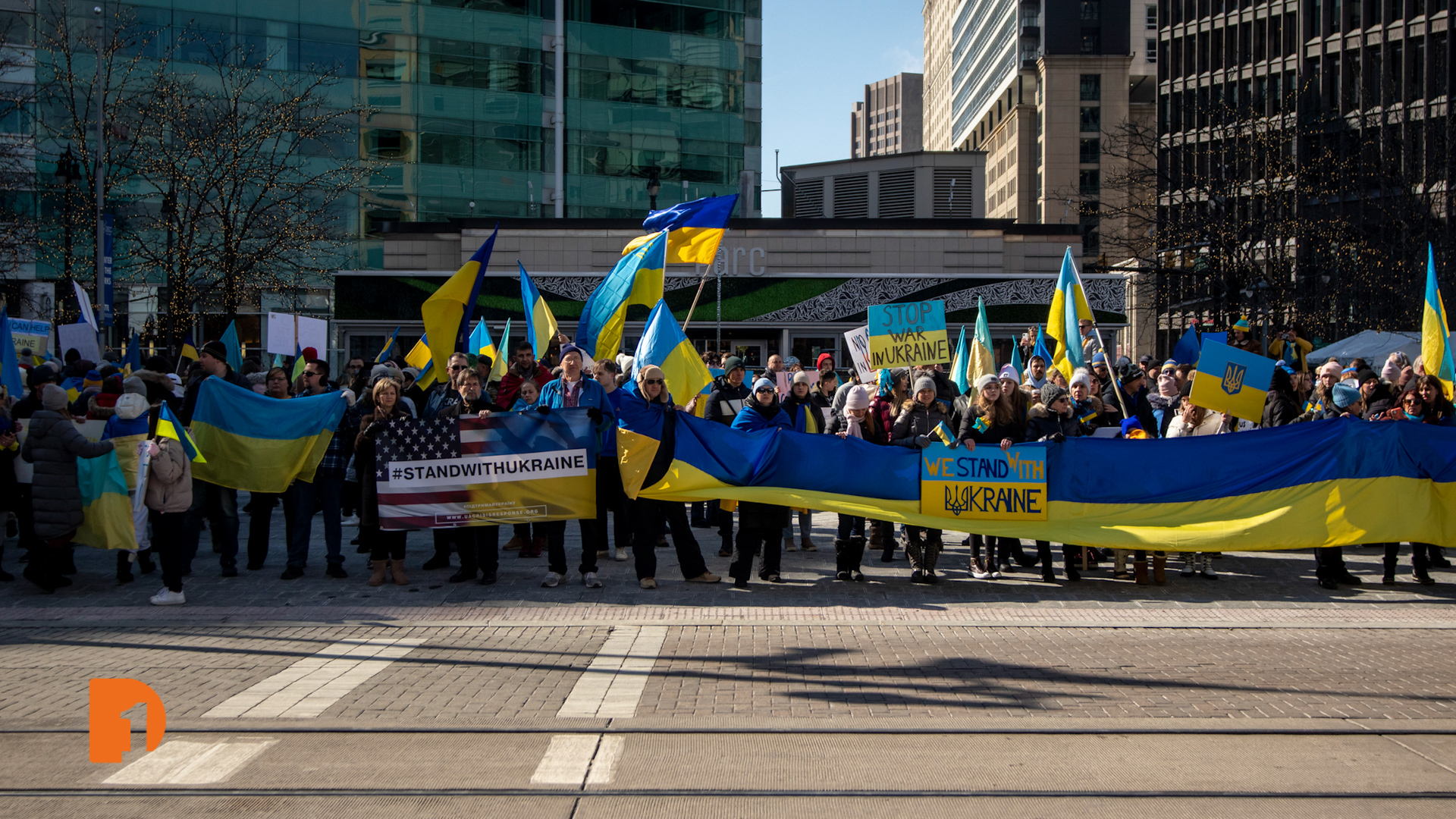
Full Transcript:
Bill Kubota, One Detroit: A rally for Ukraine over at the University of Michigan last weekend.
Natalia Kujan Gentry, Attorney, Ukrainian American: My father-in-law is very conservative,and he attended that rally with me on Saturday. A few months ago, he was calling Vladimir Putin his man, and now he wants to give money to any charity that he can to end this war.
Bill Kubota: Natalia Kujan Gentry, Detroit attorney and Ukrainian American, lending a voice to the fight trying to change minds.
Natalia Kujan Gentry: And so I convinced him, and I’m sure I convinced other people. But the only way you can do that is by telling your very deep personal story, to make it real.
Bill Kubota: Gentry, a U of M history major, growing up steeped in tradition and culture.
Natalia Kujan Gentry: We played soccer together, we played bandura together, which is the instrument behind me, I had to pull it out.
Bill Kubota: Gentry taught others how to play. The bandura has a special place right here in Michigan. Here’s the Ukrainian Banduras Chorus, the national ensemble based in Metro Detroit.
Natalia Kujan Gentry: We’ve preserved our language, we’ve preserved our music, we kept it all alive.
Danylo Terleckyj, Attorney, Ukrainian American: It’s interesting because Ukrainian was my first language, even though I was born and raised in Metro Detroit.
Bill Kubota: Dan Terleckyj is in Chicago now, also an attorney, while bringing news to Ukrainian Americans through an online radio stream.
Danylo Terleckyj: I know the true story. Hey, I’m just a guy, one person here with a laptop and a cell phone.
Bill Kubota: He’s talking to people from all over, and inside the war zone.
Danylo Terleckyj: I know what’s going on, and I know the people who can tell the true story, and I’m just trying to magnify their voices.
Bill Kubota: The communication and the direct pipeline to what’s happening is different than any other war, you know.
Natalia Kujan Gentry: Vladimir Putin’s never lost a war; he’s invaded sovereign territory four times. But I think that this time is different because of social media. The world is finally starting to see what Ukraine is. Not that it’s some dark Soviet remnant, it’s a beautiful, vibrant metropolis with history that goes back thousands of years.
Bill Kubota: The last centuries Ukrainians’ struggle with Russians, the Soviets, it’s been ongoing.
Danylo Terleckyj: My grandmother was an immigrant to this country. She came to Detroit in 1949 after World War II.
Bill Kubota: Here’s Terleckyj’s grandmother symbolizing Lady Liberty, freedom, chained to a hammer and sickle.
Danylo Terleckyj: They organized. They organized their own media for the time. It wasn’t what I’m doing. But I’m just doing what they’re doing with new technology.
Bill Kubota: Ukrainian Americans can connect this war with history they know well and more of us ought to. We know about the Armenian Genocide, we know about the Holocaust, but…
Natalia Kujan Gentry: No one knows about the Holodomor. The Holodomor was, it was again, a Soviet reaction to what was considered to be mild resistance. The Soviet idea is that you punish the people any time that they act up
Bill Kubota: the Holodomor 1932 to 1933, an intentional mass starvation that killed many, many millions, mostly Ukrainians.
Natalia Kujan Gentry: So my grandparents, all four of them were young kids when the genocide happened. They were all less than 10. Some of their siblings were starved to death. The world did not know about Ukraine’s genocide. You know, the Iron Curtain was real. No information came out and no information came in from the outside world.
Bill Kubota: Now attorneys Terleckyj and Gentry are networking with others trying to bring Ukrainian refugees to the U.S. Nearly 700,000 have fled, mostly women and children. The men held back to fight the Russians, but who else will fight with them?
Danylo Terleckyj: Ukrainians have a saying, “Українець Не той у кого предки українці нащадкиукраїнці”. “Your ancestors don’t make you Ukrainian, your descendants do”. So to every single person in the world who’s fighting for freedom and democracy, we are all Ukrainian now.
Subscribe to One Detroit’s YouTube Channel & Don’t miss One Detroit Mondays and Thursdays at 7:30 p.m. on Detroit PBS, WTVS-Channel 56.
Catch the daily conversations on our website, Facebook, Twitter @DPTVOneDetroit, and Instagram @One.Detroit
View Past Episodes >
Watch One Detroit every Monday and Thursday at 7:30 p.m. ET on Detroit Public TV on Detroit Public TV, WTVS-Channel 56.
Stay Connected
Subscribe to One Detroit’s YouTube Channel and don’t miss One Detroit on Thursdays at 7:30 p.m. and Sundays at 9 a.m. on Detroit PBS, WTVS-Channel 56.
Catch the daily conversations on our website, Facebook, Twitter @OneDetroit_PBS, and Instagram @One.Detroit
Related Posts
Leave a Reply
Your email address will not be published. Required fields are marked*

